What we need: Courage, curiosity and data
Helping the planet is best done as part of a team. In this interview, Britta von Selchow (Interzero) and leading sustainability expert Sabine Braun (Accenture) talk about why companies should be collaborating on the closed-loop economy.
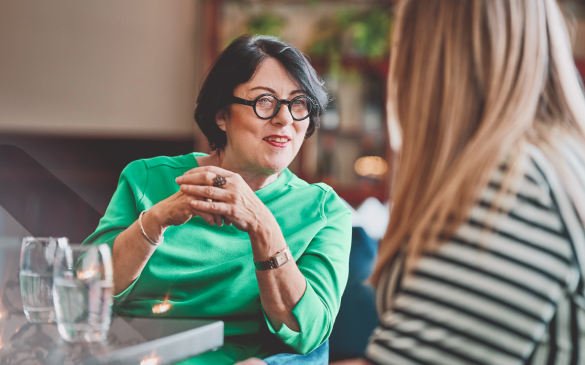
Britta von Selchow: Ms Braun, you’ve been advising companies about sustainability for 30 years — and there’s still plenty more to be talked about here. Where are we today, if we’re looking specifically at the circular economy?
Sabine Braun: Sustainability is now much more than just a calling card for businesses. And they need more than just transparency here. Many of them have understood that it’s time to make a real transition: that they need to look again at raw materials and rethink their business models. Yet they are nervous about fully committing, which is a great shame. While the circular economy can be a key factor for climate change mitigation, its potential is still largely untapped and so it remains a sleeping giant.
Britta von Selchow: What do companies need to be able to take action now and utilise the potential for themselves?
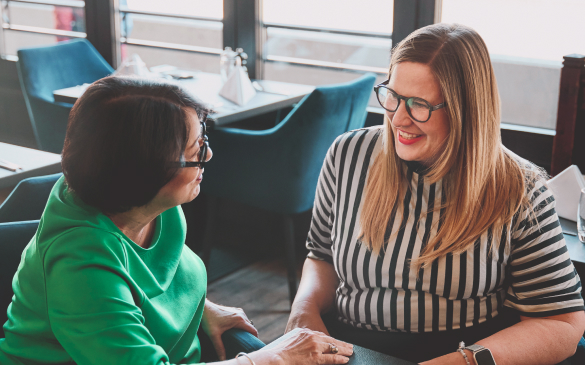
Sabine Braun: The Green Deal and EU legislation have paved the way here. However, more is needed than the big targets like climate neutrality 2050. Companies need detailed strategies for achieving these goals — as well as courage, curiosity and staying power. And now is the perfect point in time to invest in closed-loop systems: the circular revolution is imminent — and who wants to be on the losing side when it arrives?
Britta von Selchow: In our experience, managing raw materials in the loop — and being able to reuse them for in-house production — is becoming more important for manufacturers for three reasons: to fulfil legal requirements, to be more resilient against fluctuations in supply chains in a land poor in raw materials such as Germany and — last but not least — to achieve cost advantages by re-using components. Successful loops are created by the stakeholders in a value chain working together, so openness and a readiness to collaborate are key core competencies for our future.
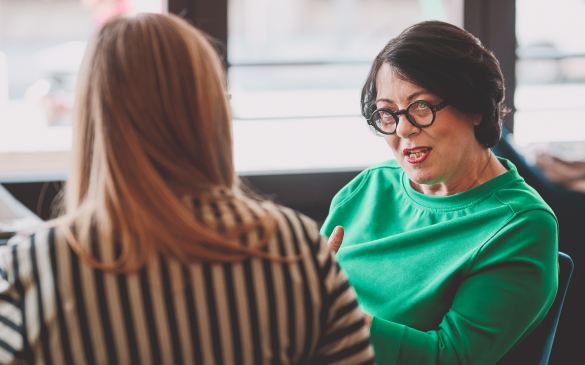
Sabine Braun: The ability to think in terms of transactional ecosystems is certainly a key criterion for success. Engaging more in networking, harnessing the innovative strengths of start ups and developing solutions for industries rather than individual companies — all of this naturally needs digitalisation and artificial intelligence to work at scale.
Britta von Selchow: We fully agree with this philosophy and so we’ve developed the Interzero Materialkonto (“material account”): a digital twin for the recycling process chain. This is already helping companies to map out their entire raw material loop and efficiently return their production scrap, products, and packaging to their own loop at the end of their lifecycle.
Sabine Braun: I firmly believe that digital solutions like the ones Interzero is fielding will be decisive for advancing the circular economy and the overall transition to sustainability. This is true not only as regards forthcoming reporting obligations like the CSRD (EU Corporate Sustainability Reporting Directive). Sustainability data is now also becoming significant for businesses as a KPI in its own right — it will be unavoidable in the future.
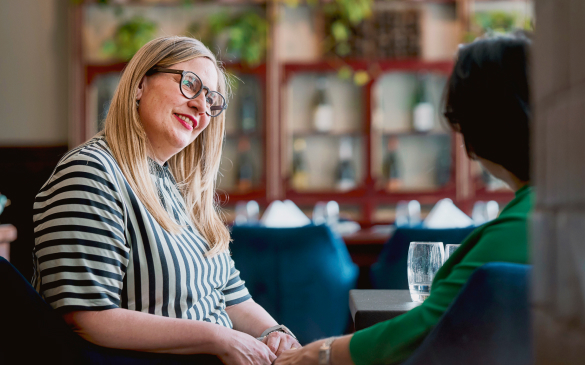
Britta von Selchow: How would you motivate companies to take an active part in shaping the future and maybe step out of their comfort zone when doing so?
Sabine Braun: We don’t need so much as a call to action as a brief look at the facts: we’re on course to miss the 1.5 °C target and the physical impacts of climate change are now also increasingly felt in Germany. Anyone who wants their children and grandchildren to inherit a liveable planet needs to act — and do so today. We need to be talking positively about the future. We have a considerable wealth of know-how and expertise, and strong SMEs. Germany may well be a ‘Land of Ideas’ — but these finally have to be put into practice.
Britta von Selchow: In a way, it’s good that no one has to do it alone when saving the planet: closing loops is a shared task that we can enjoy tackling together. I see this kind of positive team spirit at work both in our company and at our customers. Sustainable value creation just needs the right partners — plus courage, curiosity, and data. Intelligent, digitally optimised recycling creates the new perspectives on raw materials that we need so urgently.
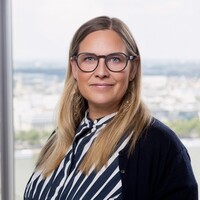
Head of Sales Circular Solutions


